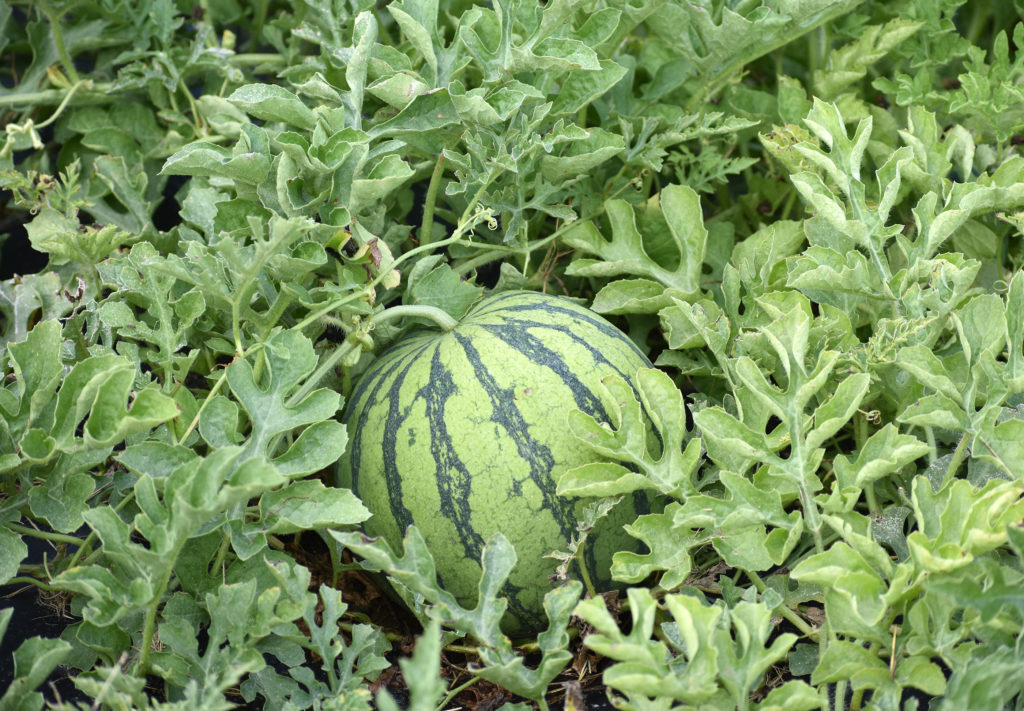By Clint Thompson
Watermelons are one of the most valuable vegetable crops that South Georgia growers produce every year. It is only appropriate that the University of Georgia (UGA) conducts research that will benefit farmers for the foreseeable future.

Ted McAvoy, UGA Extension vegetable specialist, is tasked with researching watermelons and the different types that producers want to grow, on the UGA Tifton Campus.

“Watermelons are the biggest vegetable crop in our area. It’s usually in the top two in the state. The leading crops would be watermelons, sweet corn and Vidalia onions and bell peppers. I think it is very important that we do watermelon trials that have big economic impact,” McAvoy said.
“As far as history goes, they used to grow seeded watermelons that were much larger. Consumer preference has shifted to smaller melons. Even our large melons, you want about a 45-count in a bin. Your 36-counts are bigger and not as preferred. That’s the majority of what we’re growing is the large seedless watermelons.
“There is more interest in the boutique, small, seedless watermelon. They typically don’t have as much disease tolerance. There has not been as much focus on those, so there’s a lot of improvements to be made.”
McAvoy highlighted some of the watermelon research he is focusing on while studying watermelons, big and small.
“I’m looking at disease tolerance, yields, maturity, size distribution, brix, the sweetness, rind pattern and firmness. I want to make a recommendation to Georgia growers to what performs well in our area,” McAvoy added. “It might be the most popular variety in the world, but it might not perform here. It might do better in California. We have a lot of challenges with pollination and with disease, so we have to test everything here to make sure it works well here.”









